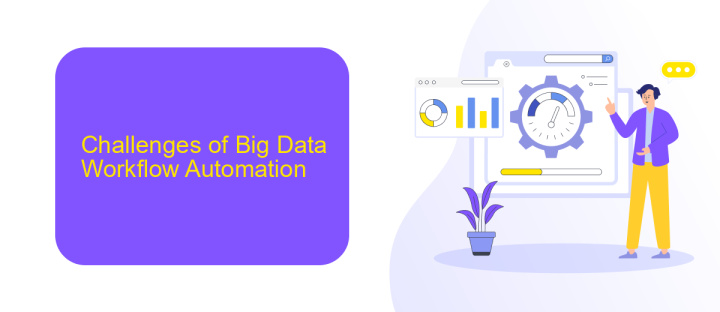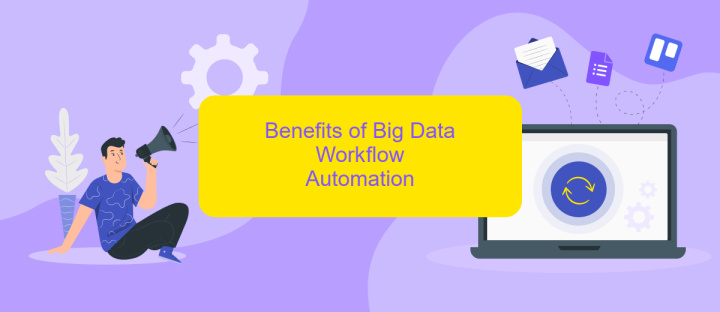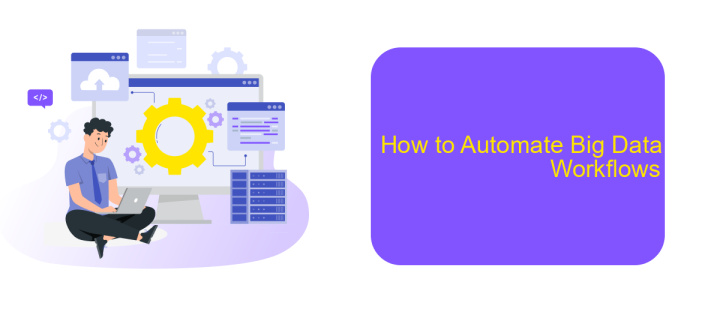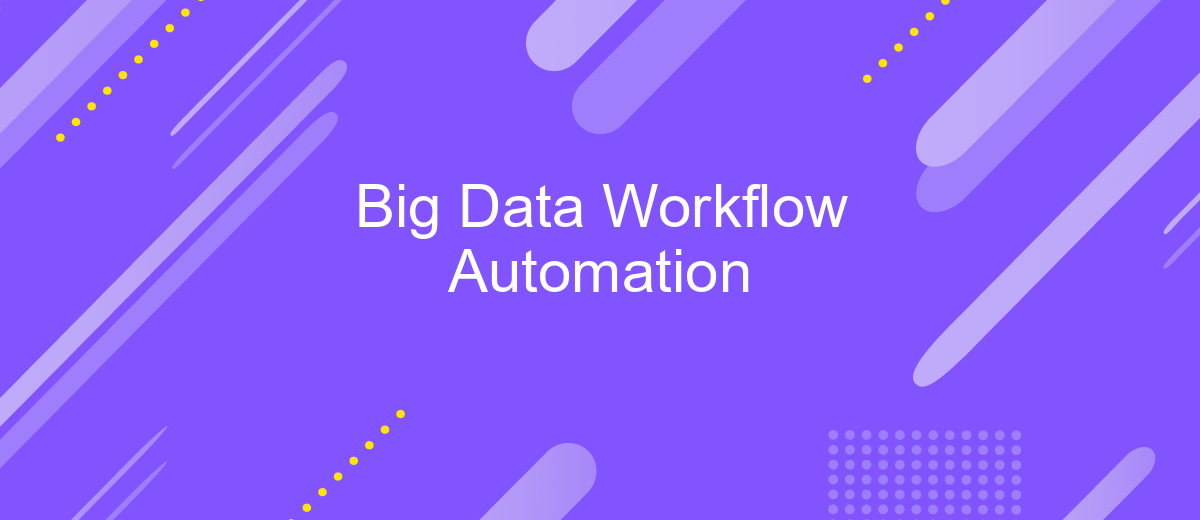Big Data Workflow Automation
In today's data-driven world, managing and analyzing vast amounts of information efficiently is crucial for businesses. Big Data Workflow Automation offers a streamlined approach to handling large datasets, reducing manual intervention, and accelerating decision-making processes. By leveraging advanced algorithms and automation tools, organizations can enhance productivity, gain deeper insights, and maintain a competitive edge in the market.
Introduction
Big Data Workflow Automation is transforming the way organizations handle vast volumes of data. By automating repetitive tasks, businesses can significantly reduce human error, increase efficiency, and make data-driven decisions more rapidly. The importance of integrating various data sources and systems seamlessly cannot be overstated, as it ensures a smooth flow of information across the organization.
- Streamlined data processing and management
- Enhanced data accuracy and reliability
- Improved decision-making capabilities
- Reduced operational costs and time
One of the key tools in achieving effective workflow automation is ApiX-Drive. This service allows for easy integration of multiple data sources without the need for extensive coding knowledge. By leveraging such tools, organizations can automate data transfers, synchronize information across platforms, and ensure that their data is always up-to-date and accessible. The result is a more agile and responsive business environment, capable of adapting to the ever-evolving data landscape.
Challenges of Big Data Workflow Automation

Big Data Workflow Automation presents several challenges that organizations must navigate to achieve efficient and effective data processing. One of the primary challenges is the integration of diverse data sources, which often involves handling various data formats and structures. Ensuring seamless data flow between different systems can be complex and time-consuming, requiring robust integration solutions. Tools like ApiX-Drive can simplify this process by providing a platform for automating data transfers and integrations, thereby reducing manual effort and potential errors.
Another significant challenge is maintaining data quality and consistency throughout the workflow. As data is ingested, processed, and analyzed, it is crucial to implement stringent validation and cleansing mechanisms to prevent inaccuracies. Additionally, scaling the infrastructure to handle large volumes of data efficiently while managing resource allocation and performance optimization remains a persistent issue. Addressing these challenges requires a combination of advanced technologies, skilled personnel, and strategic planning to ensure that Big Data Workflow Automation delivers the desired outcomes.
Benefits of Big Data Workflow Automation

Big Data Workflow Automation offers numerous advantages that significantly enhance operational efficiency and decision-making processes. By automating repetitive tasks, organizations can focus on more strategic activities, thus driving innovation and growth.
- Increased Efficiency: Automation reduces the time and effort required to process large volumes of data, leading to faster and more accurate results.
- Cost Reduction: By minimizing manual intervention, companies can lower operational costs and allocate resources more effectively.
- Enhanced Accuracy: Automated workflows reduce the risk of human error, ensuring that data processing is consistent and reliable.
- Scalability: Automation tools can easily scale to handle growing data volumes without compromising performance.
- Improved Integration: Services like ApiX-Drive facilitate seamless integration between various data sources and applications, streamlining the entire workflow.
Moreover, Big Data Workflow Automation empowers businesses to make data-driven decisions in real-time. By leveraging advanced analytics and integration platforms, organizations can gain deeper insights, optimize operations, and maintain a competitive edge in the market.
How to Automate Big Data Workflows

Automating Big Data workflows can significantly enhance efficiency, reduce errors, and save time. The first step is to identify repetitive tasks that can be automated, such as data collection, cleaning, and transformation. These tasks often consume a lot of time and resources if done manually.
Once you have identified the tasks, the next step is to choose the right tools and platforms for automation. Tools like Apache NiFi, Airflow, and Talend are popular choices for automating Big Data workflows. These tools offer robust features for data integration, processing, and monitoring.
- Use Apache NiFi for real-time data ingestion and routing.
- Leverage Apache Airflow for scheduling and managing complex workflows.
- Utilize Talend for comprehensive data integration and transformation.
- Consider ApiX-Drive for seamless integration of various applications and services.
After selecting the tools, it's crucial to set up monitoring and alerting mechanisms to ensure the workflows are running smoothly. Regularly review and optimize the automated processes to adapt to changing requirements and data volumes. By following these steps, you can effectively automate Big Data workflows and focus more on data analysis and decision-making.
Conclusion
In conclusion, the automation of Big Data workflows significantly enhances efficiency and accuracy in data processing, allowing organizations to make more informed decisions in a timely manner. By streamlining complex data tasks, businesses can reduce manual errors and focus on strategic initiatives that drive growth and innovation. The integration of robust tools and platforms is essential to achieving seamless workflow automation.
Services like ApiX-Drive play a crucial role in facilitating these integrations, offering a user-friendly interface for connecting various data sources and applications. By leveraging such tools, companies can ensure that their data pipelines are both reliable and scalable, thus maximizing the value derived from their Big Data initiatives. As technology continues to evolve, the importance of automated workflows in managing and analyzing large datasets will only grow, making it an indispensable component of modern business strategy.
- Automate the work of an online store or landing
- Empower through integration
- Don't spend money on programmers and integrators
- Save time by automating routine tasks
FAQ
What is Big Data Workflow Automation?
What are the benefits of automating Big Data workflows?
How can I integrate different data sources for automated workflows?
What challenges might I face when automating Big Data workflows?
How do I get started with Big Data Workflow Automation?
Time is the most valuable resource for business today. Almost half of it is wasted on routine tasks. Your employees are constantly forced to perform monotonous tasks that are difficult to classify as important and specialized. You can leave everything as it is by hiring additional employees, or you can automate most of the business processes using the ApiX-Drive online connector to get rid of unnecessary time and money expenses once and for all. The choice is yours!


